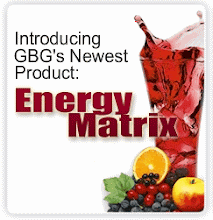If you've paid any attention to the news headlines in regards to energy drinks, you may have noticed that most of the buzz in the news is regarding the ingredients found in energy drinks and their potentially negative effects on your health. Of course the idea of more energy is extremely appealing, especially in a time when people are constantly on the go - in fact statistics show that the average American only gets 6 1/2 hours of sleep a night. And while energy drinks work great as a pick-me-up, are they worth the long term, or even sometimes short term, risk?
Source: USA Today - Americans skip sleep...
So what do sleep statistics have to do with energy drinks? A lot!
Today's active lifestyles leave many people physically and mentally drained. To combat fatigue, more and more people are turning to energy drinks, catapulting this once non-existent market to dominate the beverage industry. The energy drink industry is still very young, at only about 8 or 9 years old (give or take a few years). Yet, in those few years, energy drink sales have experienced astronomical growth - in fact they have experienced an impressive 75% growth since 2000 with sales doubling each year since their introduction. And if that's not enough, energy drinks are now a multi-billion dollar a year industry in the U.S alone.
Source: Market Research World
Don't believe me? Take a look at the following video (from 2006) of Dan Mayer being interviewed on CBS Sunday morning news about energy drinks during a segment about the energy drink industry.
While these statistics of growth and sales are extremely impressive, they don't necessarily mean that these energy drinks are healthy for you. Energy drinks are extremely popular amongst adults, athletes, teenage kids and college students who may be pulling all nighters... But the important question should be: Are they safe?
Apparently the manufactures of energy drinks don't think they are safe since most energy drink labels read: Caution! or Warning! Why are these labels often overlooked by consumers? In many cases the print on the labels is so small that people don't notice them or have trouble reading them. Even if energy drink fans take the time to read the sometimes extensive ingredient list, many of them are not familiar with the ingredients or with their side-effects.
Energy drinks may provide a boost from all the sugar and caffeine, but the boost is then usually followed by a low that can leave you feeling worse than before. Most energy drinks get their punch from caffeine and other stimulants like guarana. While many of the same stimulants can sometimes be found in many other carbonated drinks and coffee, they are found in much higher quantities in energy drinks. Basically all these stimulants do is stimulate your central nervous system.
Energy drinks can also cause additional problems. Some possible side-effects linked to energy drinks include their ability to:
- interfere with medications
- raise blood pressure
- cause dizziness
- cause a racing heartbeat
- cause a blunted physiological response ... meaning if you're very jazzed up on a stimulant like caffeine you may not be aware, for example, when you're exercising that you're fatigued, that you're experiencing pain, or that you're dehydrated; so, you're more prone to injury.
Sounds like the opposite of what you want from an energy drink."Without enough iron, your body can't produce enough hemoglobin, a substance in red blood cells that enables them to carry oxygen. As a result, iron deficiency anemia may leave you tired, weak, and pale."
Another one of the many problems with most energy drinks is they are not regulated by the FDA - they're not drugs, although caffeine is considered an over the counter drug and is most widely used worldwide. Some of the other ingredients are herbal extracts, so they're also not regulated by the FDA. We still don't know if the combination of these products is safe. A lot of energy drinks have amino acids, electrolytes, sodium and potassium, but the jazz is coming from the stimulants. Because of this, most energy drinks have to display the following disclaimer (or similar):
"These statements have not been evaluated by the Food and Drug Administration. This product is not intended to diagnose, treat, cure or prevent any disease***
***Only one energy drink also displays the following disclaimer: Under the FDA Dietary Supplement Health and Education Act of 1994 (DSHEA), this disclaimer must be displayed on Dietary Supplement labels because current government laws do not require the Food and Drug Administration (FDA) to evaluate the efficacy of specific dietary supplements.
To date only one energy drink - GBG’s ENERGY MATRIX™ - is backed by a United States Patent, and has produced valid Human In Vivo Clinical Trials and scientific documentation to FDA and FTC Regulatory Attorneys for all claims and statements made. Full science may be seen at GBG Science
So, are energy drinks safe?
In our opinion, most energy drinks are gimmicks at best and harmful at worst. It appears as though Energy Matrix is THE ONLY energy drink that has undergone FDA trials, despite the lack of need to.
If you'd like to learn more about exactly what's in energy drinks, check out our article on energy drink ingredients.


